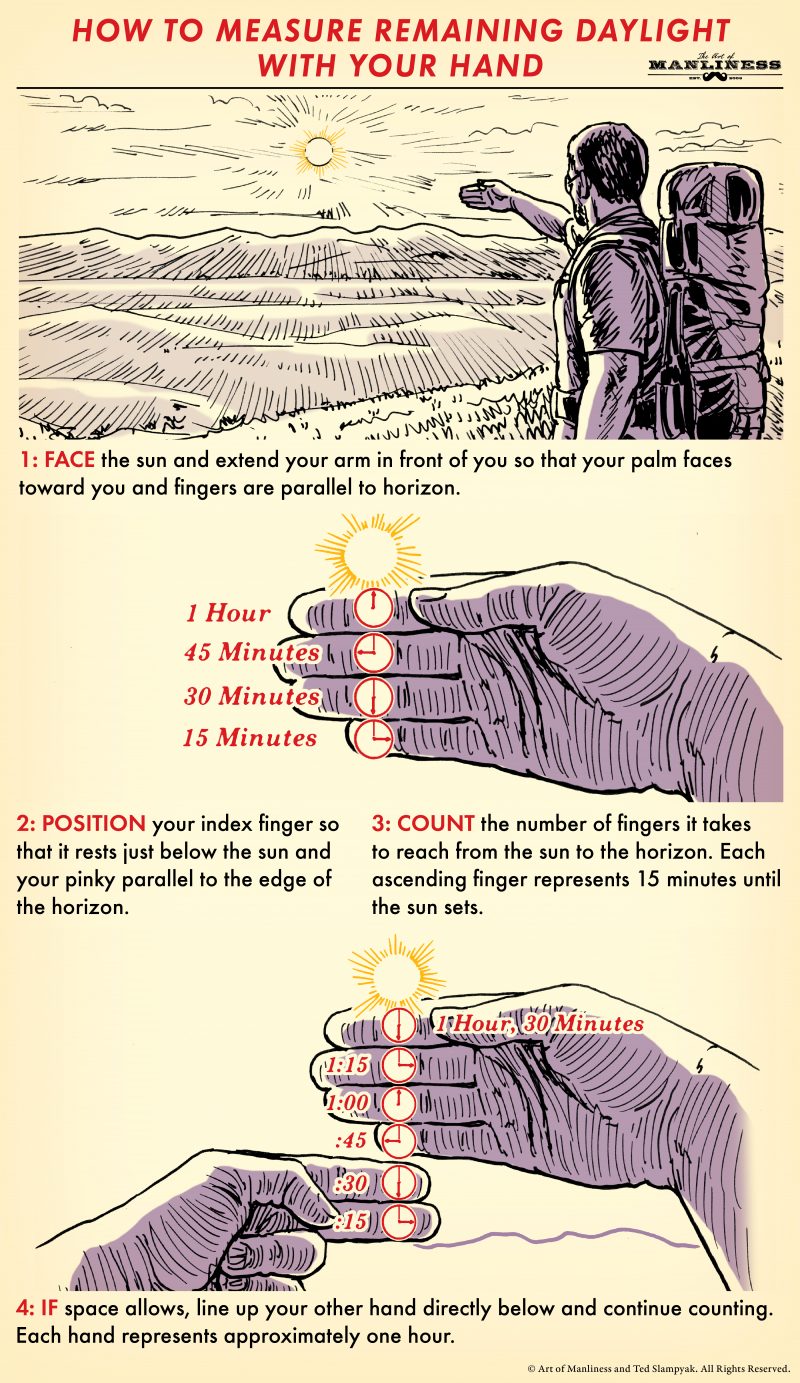
You’re in the woods near the end of the day and you ask yourself: should I set up camp now, or do I have enough daylight to keep trekking further down the trail? But you’re not sure what time sunset is, and therefore how much light you have left. Sure, you could check your watch/phone, if you have one. But maybe it’s not working, and even if it is, there’s a simple, age-old method you can employ to find out how many daylight hours there are before the sun sets. The cool part is that the only equipment you need is your hands.
Keep in mind that this method varies depending on your geographical location. In the north, the sun sets at shallower angles, allowing more usable light than your hands will show. The day will grow dark quicker in the tropics, where the sun sets nearly straight down. And no matter what latitude you’re at, also consider your local environment. If the sun is setting toward a mountain range, you’ll lose light a lot faster than you would in a wide open plain. In a forest, you’ll also lose light faster as the tree canopy blocks out the fading light of dusk.
1: Face the sun and extend your arm in front of you so that your palm faces toward you and fingers are parallel to horizon.
2: Position your index finger so that it rests just below the sun and your pinky parallel to the edge of the horizon.
3: Count the number of fingers it takes to reach from the sun to the horizon. Each ascending finger represents 15 minutes until the sun sets.
4: If space allows, line up your other hand directly below and continue counting. Each hand represents approximately one hour.
Like this illustrated guide? Then you’re going to love our book The Illustrated Art of Manliness! Pick up a copy on Amazon.


